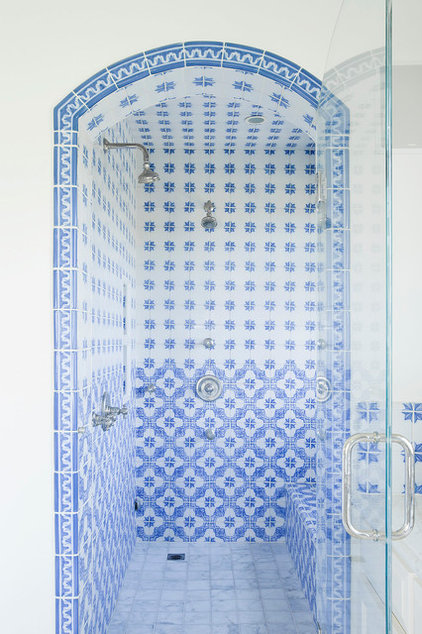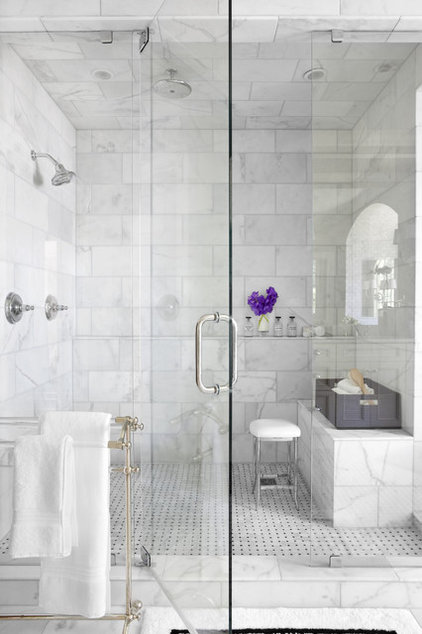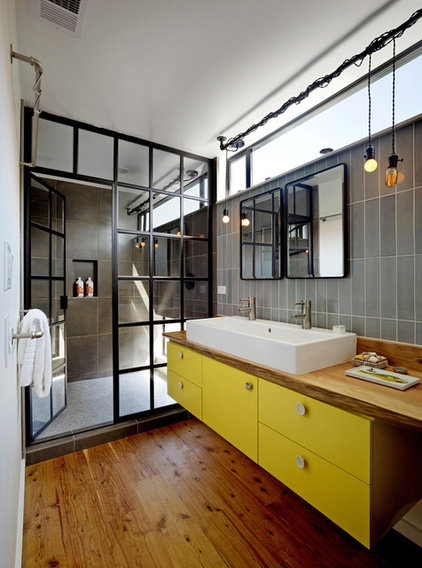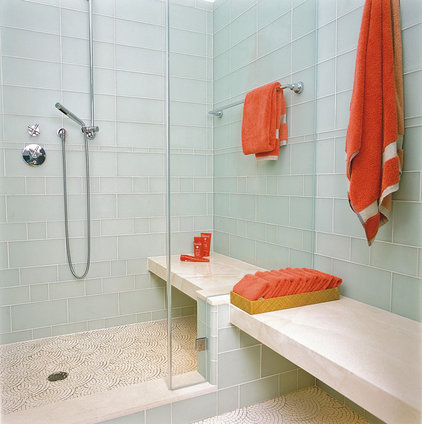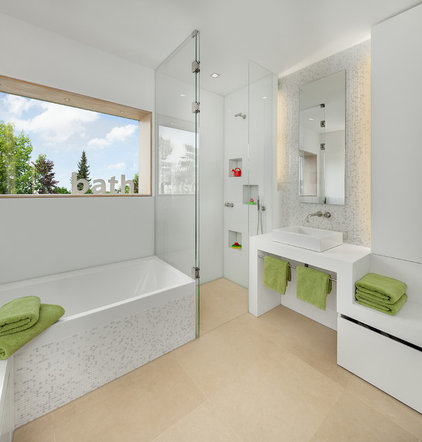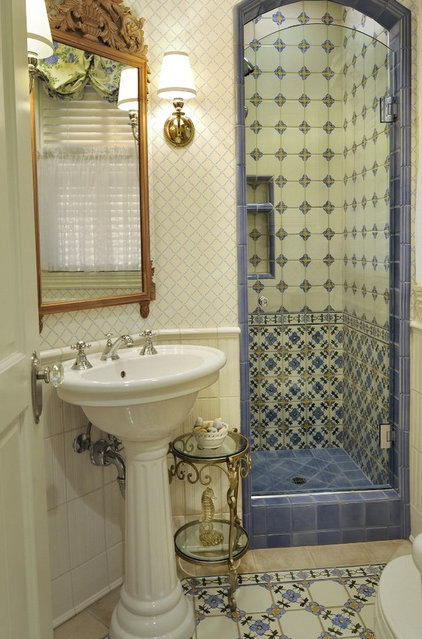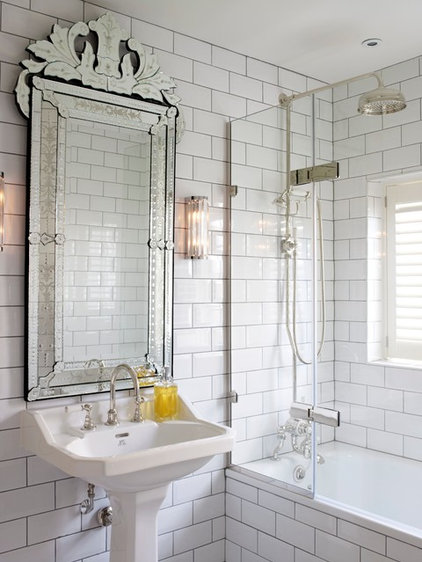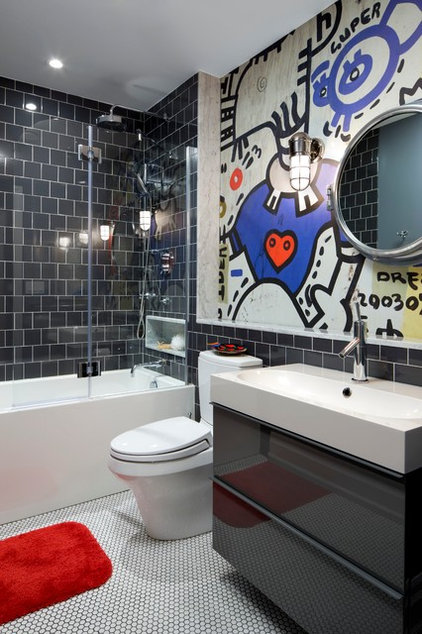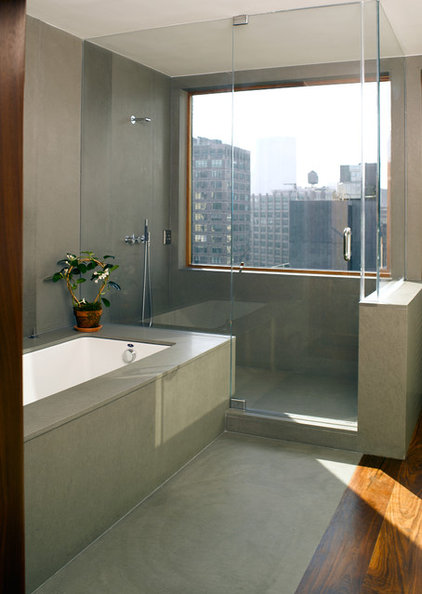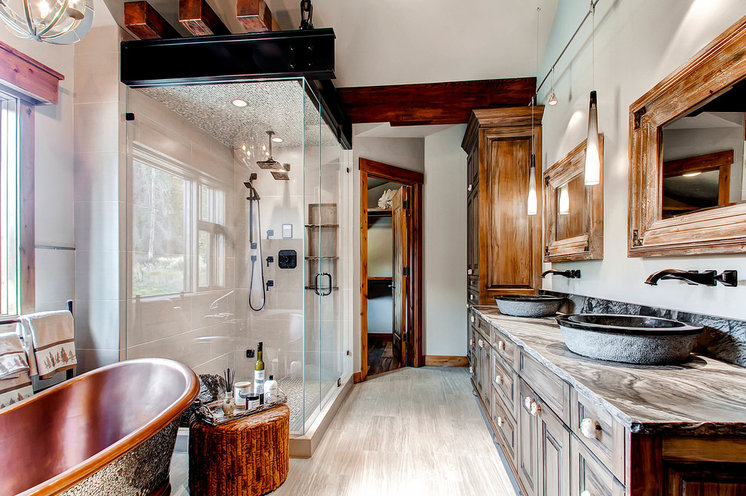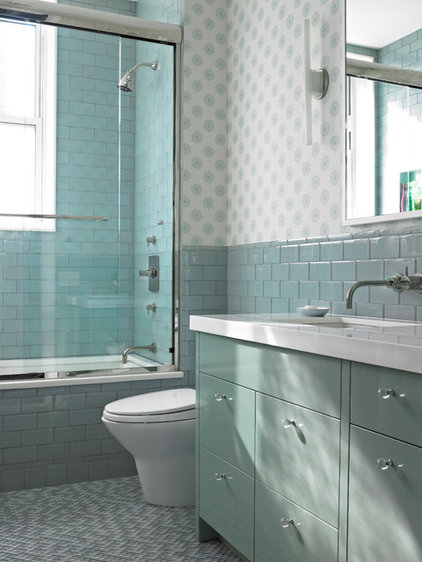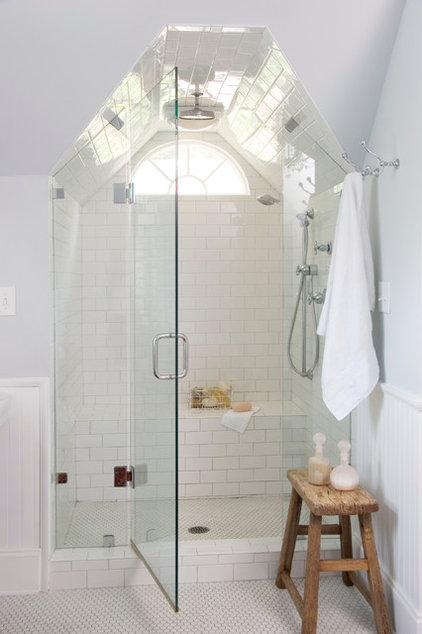How the Heck Do You Clean a Glass Shower Door?
In fact, for the squeegee-averse, opting to use the guest bathroom and its shower with a curtain instead of a glass door is a timesaving trick that is not uncommon. My friends recently admitted that they shower in their guest bathroom so they don’t have to clean their newly remodeled, all-glass master bath shower. There’s got to be a better way. And I think there is.
A squeegee is a windshield-wiper-like tool with a handle and a long, flat rubber blade used to clean or remove something (in this case water) from a surface.
Some squeegees have suction cups for attaching to walls for easy access and storage, while some come in colors or stainless steel for the style-conscious. Do they all work the same? In a nutshell, yes.
After each use, the experts advise, wring the cloths out tightly, and launder them at least once a week.
Either way, once the shower has been wiped down, finish the job with a quick misting of daily cleaner such as Method Daily, Tilex Daily Shower Cleaner, Mrs. Meyer’s Clean Day Tub and Tile or your own concoction (see below).
The best part about daily maintenance: You won’t need to deep-clean the shower as often and the glass will stay sparkly.
Beverly Leestma, DIY expert and author ofThe Make Your Own Zone, offers these directions for a chemical-free shower spray that saves both money and the environment: Mix together a half-cup of hydrogen peroxide, a half-cup of rubbing alcohol (a natural degreaser), 1 teaspoon liquid dish soap and 1 tablespoon dishwasher rinse aid in a 32-ounce spray bottle. Next, fill the bottle with water and, after capping, rock the bottle gently back and forth to combine the ingredients without making them foam up. Store away from sunlight.
Life happens, however, and when it does, things like daily maintenance can take a backseat. For glass shower enclosures, this means buildup, grime and the bath time blues. Sadly, it also means it will take more than a simple squeegee to get back to clean.
Jan M. Dougherty, cleaning expert and author of The Lost Art of House Cleaning, recommends using Krud Kutter, a biodegradable, nontoxic cleaner-degreaser. Her advice: Mix one part Krud Kutter with five parts water in a spray bottle.
Tip: Be sure to put the water in the bottle first, then the product. Otherwise foaming bubbles could make work even more of a chore.
A mixture of baking soda and water makes a scum-fighting scrub that many experts swear by. Measurements for the mixture will vary depending on how much you need. To get started, try using a half-cup of baking soda, then add water as needed to make a thick paste. Using a nonabrasive sponge, scrub the glass and rinse it with vinegar.
Once you’ve achieved a clean, sparkly surface, there are a few things you can do to make it last longer.
The big idea here is that hard water and soap scum won’t build up if they can’t stick to the surface. Think Teflon shower. Several products are designed to wick water away from surfaces, and although they weren’t created for bathroom use, the concept still applies. Rain-X and Water Armour, both found in the automotive department, are marketed for repelling water off windshields, but they can do the same for glass-walled showers.
How to do it: Spray the product on clean glass (being careful to avoid tile, metal and the shower floor) and reapply every three to four weeks). Some folks swear that after this treatment, they can skip the squeegee.
To clean the buildup and grime that accumulates in the hard-to-clean metal tracks that often frame sliding glass doors, Jill Schoff, author of Green Up Your Cleanup, has a solution. Literally.
In her book, Schoff recommends plugging any drainage holes or crevices in the track and filling it up with vinegar. Let the vinegar sit overnight and wipe clean in the morning. It gives new meaning to rise and shine!
Finally, if you want to significantly reduce the amount of soap scum on glass without eliminating showers or using the facilities at the gym, cleaning experts and Houzzers alike offer this advice: Ban the bar soap.
Almost all bar soaps contain talc, which produces the buildup. Consider switching to a non-talc-containing soap (such as Dove or natural soap), or opt for liquid soap instead.
Of course, there’s no escaping water spots, so some regular maintenance will still be required. It just won’t be as much.
